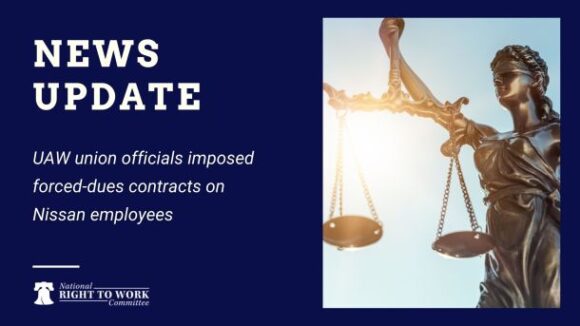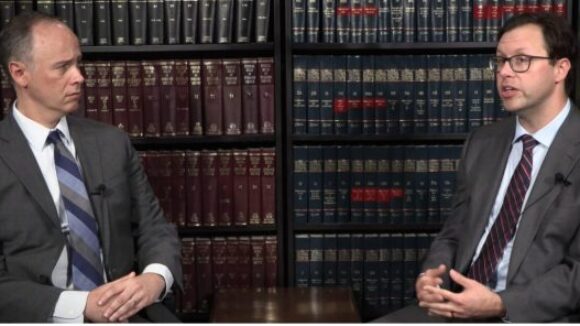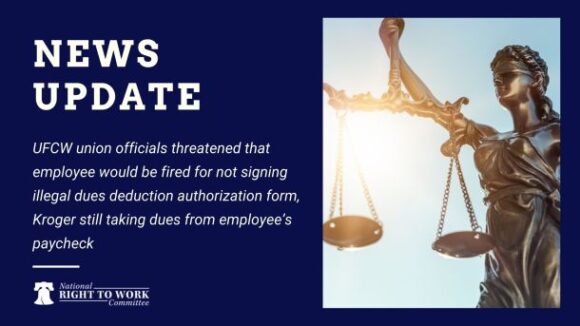Somerset, NJ, Nissan Parts Distribution Center Employees File Petition for Vote to Kick Out UAW Union
UAW union officials imposed forced-dues contracts on Nissan employees
 The Washington Times takes the president and the NLRB to task for ignoring a recent appeals court decision invalidating the president’s appointments to the board:
The Washington Times takes the president and the NLRB to task for ignoring a recent appeals court decision invalidating the president’s appointments to the board:
When the Constitution puts a limitation on executive authority, the president can’t just ignore it for the sake of convenience. That message was delivered forcefully on Friday in a decision by the U.S. Court of Appeals for the District of Columbia Circuit. A unanimous three-judge panel declared unlawful President Obama’s installation of three appointees to the National Labor Relations Board while the Senate was in session. The president is compounding his disregard for the Constitution by thumbing his nose at this well-reasoned decision.
The nation’s founding document grants the president authority to “fill up all Vacancies that may happen during the Recess of the Senate.” The appellate panel’s ruling points out the use of “the Recess” as opposed to “a recess” or “an adjournment” was not accidental. The term refers to the long break between congressional sessions in which it makes sense for the president to make an interim appointment because the Senate is not available to provide its advice and consent. In his ruling, Chief Judge David B. Sentelle refused to accept novel interpretations meant to expand the appointment authority, saying, “We will not do violence to the Constitution by ignoring the Framers’ choice of words.”
Desperate to stack the National Labor Relations Board with Big Labor cronies, the White House refused to allow an old piece of parchment get in the way. On Jan. 4, 2012, Mr. Obama made the appointments even though the Senate was conducting “pro forma” business and the House of Representatives purposely chose to remain in session to thwart the potential recess appointments. Administration lawyers argued before the court that the president, not Congress, had the ultimate power to decide when the Congress was in session. Under this interpretation, Senate participation in the nomination process would be converted from a check and balance on the executive to an empty formality.
Such an interpretation undermines the separation of powers, in the appellate court’s view. It found the appointments “invalid from their inception” and, consequently, board decisions made without a quorum of properly appointed members are null and void.
Instead of graciously accepting defeat, the administration is continuing with business as usual. NLRB Chairman Mark Pearce responded to the court decision with a statement proclaiming, “The Board respectfully disagrees with today’s decision and believes that the President’s position in the matter will ultimately be upheld. It should be noted that this order applies to only one specific case, Noel Canning, and that similar questions have been raised in more than a dozen cases pending in other courts of appeals.” White House spokesman Jay Carney blew off the decision, saying, “It’s one court, one case, one company.”
The Senate’s “advice and consent” role is more important now than it has ever been, as it is unlikely purported NLRB member Richard F. Griffin Jr. would have ever been confirmed. In October, a lawsuit was filed against Mr. Griffin and other executives at the International Union of Operating Engineers, accusing them of terminating employees in an attempt to cover up embezzlement. Perhaps some of his accusers would have come forward earlier had a public hearing been set on his nomination.
Either way, everything the board does is now in question. The president must end this embarrassing episode by ordering the board to abide by the court decision.

UAW union officials imposed forced-dues contracts on Nissan employees

A new federal lawsuit from a National Right to Work Foundation-backed Starbucks employee, currently pending at the D.C. District Court, could upend the federal agency and result in a ruling that the current Labor Board’s structure violates the Constitution.

UFCW union officials threatened that employee would be fired for not signing illegal dues deduction authorization form, Kroger still taking dues from employee’s paycheck